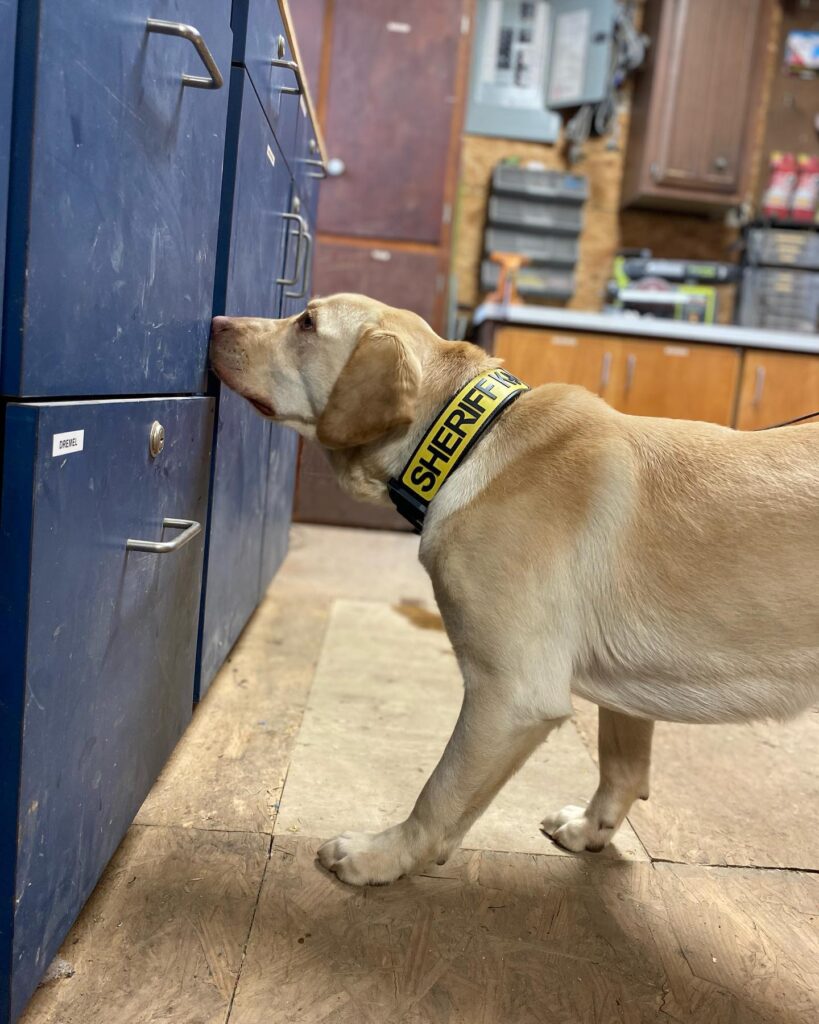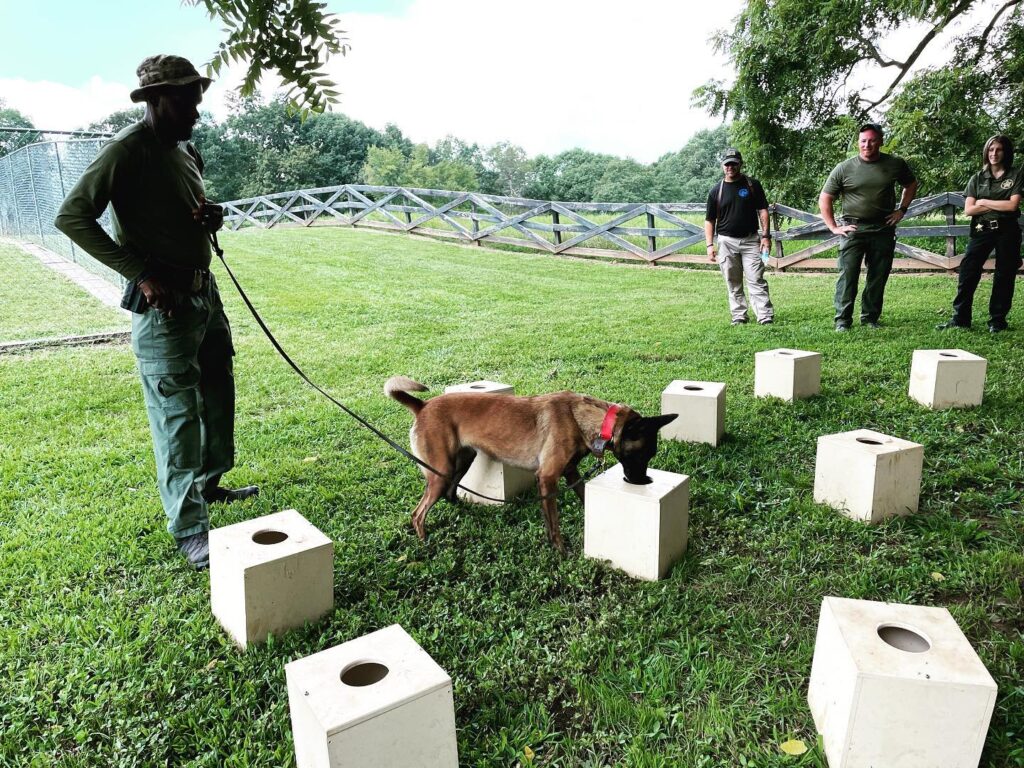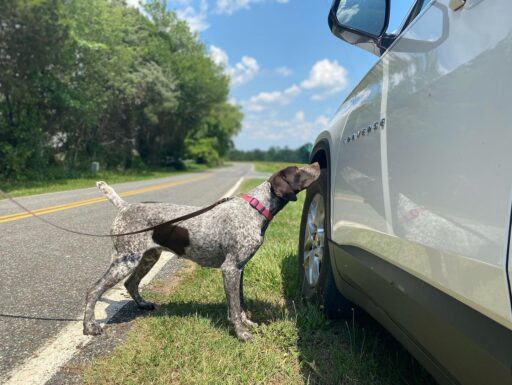Detection dog training is one of the many paths an aspiring dog trainer can take. It utilizes a dog’s inherent skill – the sense of smell. With 40 times greater olfactory receptors than humans, dogs can be trained to detect pretty much anything with their noses. The trainers are the individuals that teach dogs effectively to perform detection tasks.
This job suits anyone with a love for dogs that seeks a career around them. Detection dog training takes a lot of patience and repetition, but once even a little progress is made, it is just as rewarding for the trainer as it is for the dogs.
In this article, we will guide you on becoming a detection dog trainer, what to expect from this profession, and break down the steps to beginning this exciting career.
What does a detection dog do?
A detection dog is trained to detect and alert their handler of the presence of scents and odors it is trained to find. Also known as sniffing dogs, examples of detection dog duties include the following:
- Bed bug detection: Bed bugs are becoming more widespread with the increased number of shared living spaces. These insects can be particularly costly to accommodation businesses. Bed bug detection dogs locate these tiny insects in every phase of their lives in places humans can’t find. They point out the areas that need to be sprayed, minimizing the damages caused by pest control.
- COVID-19 detection (bio-detection): Many countries have trained dogs to detect individuals diagnosed with COVID-19, whether symptomatic or asymptomatic. A study in France conducting the accuracy of the dogs has shown impressive numbers, even reaching 100% accuracy in asymptomatic individuals. Some detection dogs are also similarly trained for sniffing diseases in people, helping with early diagnosis of deadly illnesses.
- K9 work: There is some overlap between police K9s working in law enforcement and detection dogs. A large part of the duties a police K9 upholds is detecting illegal substances and explosives. Naturally, detection training also enables police K9s to hone their abilities. Learning how to teach detection skills can be useful for anyone wishing to become a police K9 trainer.
- AKC Scent Work: Many detection dogs compete in the AKC’s Scent Work sport. It involves four levels of difficulty with two different divisions, where the dog searches for the odor of essential oils.

Why become a detection dog trainer?
As you can see, detection dog training is involved in many types of dog training in one way or another. The detection activities use a dog’s inherent skills, but without training, they won’t be able to guide the handler in the right direction. Next to basic obedience training, teaching dogs how to detect odors and alert when they are found is crucial for different types of dog training.
The ability to teach dogs how to identify and detect the presence of specific scents offers a lucrative career for dog trainers. As a detection dog trainer, you will be able to work with both the private and public sectors, offering a wide array of services. Plus, it is a fun and rewarding job. You will witness the progress of dogs putting their best skills into practice and getting better with every repetition.
Financially, there are many ways a detection dog trainer can make a living. It isn’t just building a dog from the ground up or taking a trained dog to conduct detection. You can help dog owners who want their pups to undergo specialized detection training, work for federal agencies, or even start your own detection dog training business. A well-established detection dog trainer can earn a satisfying amount training dogs, selling trained dogs, and offering detection services with their canines.
Required personality traits and skillset
First and foremost, you must have a love for dogs to become a dog trainer of any description. Training a dog takes a lot of time and effort. As with any other job, having a passion for what you do eases the difficulties it brings and makes a significant difference in overcoming challenges.
It isn’t uncommon for novice trainers to find themselves frustrated, not quite sure about what to do next. Since there is not a single way to train a dog, and every dog is different, you will also need to have an open mind. Coming up with new ideas to guide the dog to the right path is an essential skill to have for detection dog training.
A good detection dog trainer also needs to have good communication skills to teach dogs effectively without overwhelming them and carry on at the individual dog’s learning pace. Lastly, they must have a full and comprehensive understanding of detection dogs, and the required training process.
If you think you have what it takes, here is an overview of what to expect from detection dog training.

What is involved with training a detection dog?
The detection training starts with introducing the dog to the odor of the object in question, whether it is illegal substances, bed bugs, or samples from a person with the targeted disease. Once the dog is imprinted on the scent, the trainer hides it, and the dog goes out to search. When the dog identifies and detects the scent, it is rewarded with either treats or a favorite toy (depending on their motivator).
This process is continued repeatedly until the dog associates everything perfectly. However, the continuous cycles of identifying and detecting can overwhelm the dogs. Utilizing positive reinforcement and keeping dogs happy during training is an essential part of the job. It is the best way to get positive feedback from the dog to ensure the training continues smoothly, so the dog can be ready as quickly as possible.
There are several pieces of training equipment used for detection dog training, such as remote-controlled ball trainers and detection boxes. However, nothing needs to be fancy. A simple box to hide the scent is enough to train a dog, but tools help shape behavior and enhance their abilities in detection, especially when simulating real-world scenarios.
It takes many months to execute these perfectly with countless hours of repetition. Depending on the individual dog and what they are being trained to detect, it can take between up to nine months for dogs to become proficient in scent detection.
Steps to becoming a detection dog trainer
Education, a solid knowledge of dog behavior, and positive reinforcement are the essential elements of detection dog training. Understanding these fundamentals and working closely with dogs makes a successful detection dog trainer.
You can get all the education you need from our 6, 8, or 12-week detection dog trainer programs that cover everything required to become a detection dog trainer. The best part is there aren’t any prerequisites – our program offers you all the skills and knowledge you need for training a detection dog.

